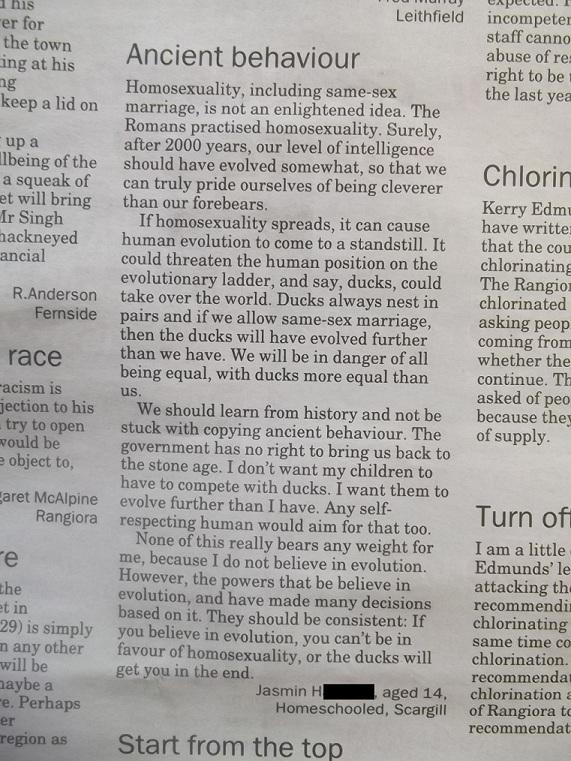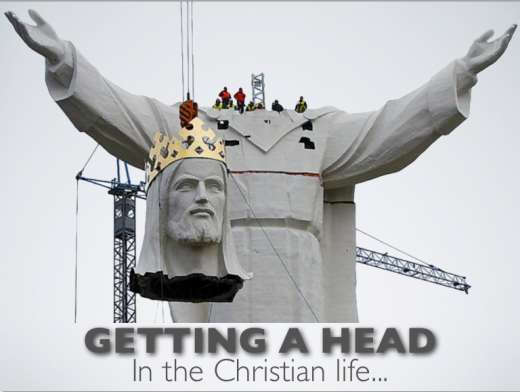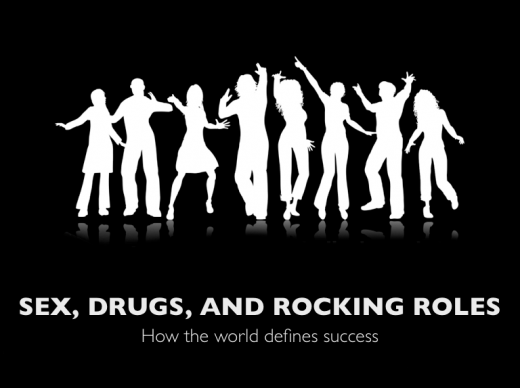Dear Guy,
I like you. Despite myself. I even kind of like your music. I can’t really admit that in public though, but you’ve essentially forced my hand here. Generally, I don’t really like the reality TV music career pathway, but you’ve proven yourself, your music has grown, and you’ve grown on me. I probably said or thought unkind things about your success in the past – and though you’ve never met me, I’m sorry about that…
I’m also sorry to hear that you’re “reconsidering your religion” as this article puts it – that’s a shame. But it’s not like people didn’t see it coming for a while – so it shows real integrity for you to acknowledge your struggles publicly. Thanks for doing that. It must be tough to disappoint the people who have invested lots in you on the basis of your “Christian” brand, but your honesty is refreshing.
Plenty of people will try to point out that not only would you be nothing without the God who gave you the musical talent that you rely on, but that you’d be nothing without the votes you won from Christians who like to vote for Team God, given the opportunity. I’m not going to go there – though I think God gave you your voice, he gives everybody life, breath, and being – and I think, all issues with the reality TV process aside, you’ve earned your musical career. So well done. You used to think this too. Remember when you told the ABC:
“I remember when I was young and um, and at Solid Rock and um, it was when I, I think I’d been to a few meetings already and slowly getting the point, slowly getting to this point where um, where kind of God sort of almost kicked me in the butt and said, you know, this is, this is what I’ve got for you and this is the future I have for you and you can take it or leave it.”
I’m sad to hear you’ve moved away from the spot you occupied during Idol, and the post Idol touring – you were so open about what your faith meant to you, and I always appreciated that. It has to be tough sticking with Jesus when fame, fortune, and opportunity comes knocking – especially in an industry where being a faithful ambassador for Christ, as Paul calls Christians, probably comes not just at a cost in terms of the things you have to say no to, but in the opportunities you might have to turn down, and the career sacrifices you might have to make – not to mention the pressure of consistently needing to turn the glory for your hard earned success back to God… The whole premise of “Idol” makes that difficult. But you were so humble, for so long, and I was really encouraged by that.
I’m sad to hear that you feel like you were lied to. It sucks when people lie to you, or manipulate you, especially when they do it while claiming to speak for God. The God card is no fun. I’m sorry if that happened, if you feel like your popular Christian personality was built on a lie.
You said:
“My views are more based on life and discovery and research than just what I’m told,”
“Because what I was told in regards to so many things was so wrong. I’ve gone from a place where I was told there was one way and only one way, to being more in a place where I don’t think anyone has the right to say what they believe is more important or more significant.”
I found that a pretty interesting take on things. For a couple of reasons… I also wonder why you’ve misrepresented people who oppose gay marriage like you have (you said: “I don’t think anyone has the right to tell someone who they can and can’t be in love with”), typically people who oppose gay marriage are saying something a little more sophisticated than that – they’re saying that being in love with someone isn’t actually the basis for deciding who can marry who… but lets get back to the lies you were told.
I’m really glad you’re interested in a journey of discovery based on research, especially when you say you still believe in God – that’s really the best kind of life – Augustine called it “faith seeking understanding” – I’d really encourage you to make sure you look at who Jesus was, and what he said, and whether the gospels are reliable – read the guys who don’t think that’s true, like Bart Ehrman, and then read the rebuttals… weigh up the evidence. Make a decision. The truth of Christianity hangs on whether Jesus was who he says he was, and did what people said he did – especially the resurrection. If you’re not going to buy that, then eat, drink, and be merry – because not only is Christianity not the way to God, there’s probably no way to God.
The person you’re really questioning when you were told there’s only one way to God is Jesus (well, you could question John’s account of what Jesus said too, but hopefully you’ve done that in your research above)… he says, in John 14:6:
“Jesus answered, “I am the way and the truth and the life. No one comes to the Father except through me.”
That’s a big claim. An arrogant claim. But it’s the claim Jesus makes about himself, not one that people thousands of years later have made up to make some extra dollars out of their church by twisting arms out of joints, or manipulating people with any sort of intolerance building fear mongering.
Jesus claims Christianity is the only way. I think you’re right that we mere mortals can’t claim that. We don’t have that sort of authority – we should probably approach any truth claims with a degree of humility and uncertainty, especially those based on a faith that other people don’t share (that’s probably got some bearing on the gay marriage debate)… if anybody has a right to say that sort of thing though – to make an exclusive claim – it’s the guy who claims to be the son of God. A couple of verses before that quote, Jesus calls God “my father,” and in the next verse he says if people have seen him, they’ve seen God – it’s that sort of position that means, if you take his claims seriously, we have to speak about him as being the exclusive way to God.
You know all this – you’ve believed in God for a long time, you’ve been part of a church for a long time, you’ve called yourself a Christian for a long time (I’m partly writing for other people here – who are wanting to figure out what Christianity means in the context of your statements). I hope you can separate the need for Christians to be tolerant of other beliefs, and the people who hold them, while politely and graciously disagreeing, from the idea that all beliefs are equally valid. Because they can’t be – some contradict each other. It’s a shame that disagreeing with somebody is so often construed as not loving the person these days, don’t you think?
It seems you’ve struggled with the relationship between individual views, and Christianity’s exclusive claims for a while. I read some things you said when you were a Christian, stuff like:
“I think at teenagers at Paradise, they get a real sort of fresh way of looking at God, there’s so many different views on what God should be or what He is and I think it’s a real personal thing, so, so people come to a youth group and they sort of find this freedom and find this um, almost like a, “Ah, man, this is not what I thought it would be like,” and they meet some great people and, and have some great worship and stuff like that and so, yeah.”
That sounds a lot like what you’ve said today.
But then I found this video. Where you said:
“I can search for the rest of my life, but I know I’ve found, in Christ, everything that matters to me. And he is the reason why I do everything I do. He has saved me from a time when I called out his name, and he came and he gave me purpose and he gave me direction. And you know because he lives, and because I know that… we celebrate today that he rose from the dead. And out of that grave he didn’t only become a man, but became a man that took all my sins, took all my worries, and I know I can face any day, no matter what comes, because he lives.”
That’s such a clear articulation of the gospel… you even sound certain there – based on your experience of God’s faithfulness to you when you called out to him. It’s sad that you’ve lost that. It’s sad for the rest of us – we haven’t just potentially lost a brother, but a guy who was prepared to publicly champion Jesus, and what being a follower of Jesus involves…
I just want you know that I prayed for you tonight. That God would give you wisdom as you seek truth, and that you’d find truth at the heart of Christianity – in Jesus – rather than in what other people have told you is necessary. I’m sure others are too. But again, thanks for your honesty – if people were more open about what they believed, and more prepared to have conversations about faith, conversation in our country would be richer for it.
In him,
Nathan












